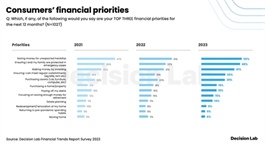Vietnam's banking sector faces uphill battle in 2023: FiinGroup
Vietnam's banking sector faces uphill battle in 2023: FiinGroup
Vietnam's banking sector is grappling with stagnant credit growth, rising non-performing loan (NPL) ratios, and the need for sustainable credit activities amidst the economic challenges in 2023.

Vietnam's banking sector encountered a challenging recovery path in 2022, battling with external turmoil and internal adjustments.
As the country entered 2023, the first signs of a slowdown in economic growth have become evident.
According to the Vietnam Banking Report 2023 by data compiler FiinGroup that was released on July 3, commercial banks have experienced stagnant credit growth due to low capital absorption. This has been further influenced by subdued demand for business expansion amidst the ongoing downturn in global trade and the domestic real-estate headwinds.
Furthermore, banks have faced difficulties in meeting the minimum capital adequacy ratio set by the State Bank of Vietnam (SBV), primarily due to escalating credit risks associated with real estate and personal consumption loans. These factors have impeded banks' plans for credit expansion and profit in the current year.
Declining production resulting from reduced export orders and high lending rates have acted as significant obstacles, discouraging borrowers from seeking new loans. To address these challenges, the government implemented supportive policies for both borrowers and credit suppliers.
Additionally, the recovery of system liquidity enabled the SBV to reduce policy rates, providing commercial banks with a guide to lower lending rates. This move aimed to reignite credit demand in the second half of 2023.
In early 2023, customer deposit growth has remained sluggish, primarily due to a decline in the wholesale segment. While deposits from individual customers have experienced slow growth, attracted by appealing savings rates, the wholesale segment has faced macroeconomic challenges, resulting in reduced deposits. The average deposit rate has exhibited fluctuations, initially surging in Q3/2022 to address the liquidity crunch, then subsequently cooling down.
FiinGroup noted, “This decline in rates has laid the groundwork for lowering lending rates, facilitating business recovery and economic growth. Despite ongoing macroeconomic turbulence, deposits continue to be an attractive option among fixed-income assets.”
Furthermore, the NPL ratio has persistently increased, indicating further deterioration in banks' credit portfolios. The expiration of Circular 14/2021, which allowed debt restructuring, coupled with unfavourable economic conditions eroding customers' repayment capacity, have contributed to the rising NPL ratio in the first quarter of 2023.
Early warning signals for credit risk, exemplified by the expansion of Loan Group 2 and accrued interests, have raised concerns about the quality of lending portfolios. However, Circular 02/2023 offers a glimmer of hope for commercial banks in 2023, as it allows loan payment rescheduling for customers facing economic hardships. This measure aims to alleviate the burden of managing asset quality and provisioning.
Meanwhile, the net interest margin (NIM) experienced a contraction in the first quarter of 2023, primarily due to elevated funding costs in a rising deposit rate environment. Banks' low-cost funding source, current accounts and savings accounts, continued to decline in Q1/2023, as customers shifted to term deposits to take advantage of favourable saving rates. Simultaneously, stagnant credit disbursement further hampered interest income, resulting in a squeezed NIM.
The period between 2022 and 2023 witnessed a significant milestone in Vietnam's digital transformation journey, driven by the government's new plan on The Application of Information Technology, Digital Transformation, and Information Security.
Banks are pursuing digitalisation across all touchpoints, providing digital services to both the retail and wholesale segments. The rise of open banking has led to the development of super apps, offering a comprehensive banking experience that challenges the traditional brick-and-mortar model.
Moreover, banks are adopting alternative credit-scoring methods based on customers' digital footprint and the national database, strengthening their risk management processes.
Green financing has gained increased importance in the Vietnamese banking system as the country strives to achieve net-zero emissions by 2050. Recognising the financial sector's vital role in channelling capital to support Vietnam's green economy, efforts are being made to promote sustainable credit activities.
Although the size of green financing in Vietnam remains modest compared to its regional counterparts, and primarily consists of green loans, robust growth between 2018 and 2021, along with the diversification of sustainable products, signals potential for further expansion in the green credit market.
However, challenges remain in the form of legal frameworks and fragmented environmental, social, and governance management at commercial banks. Consequently, additional guidance from the government is anticipated to bolster sustainable credit activities in the near future.




















